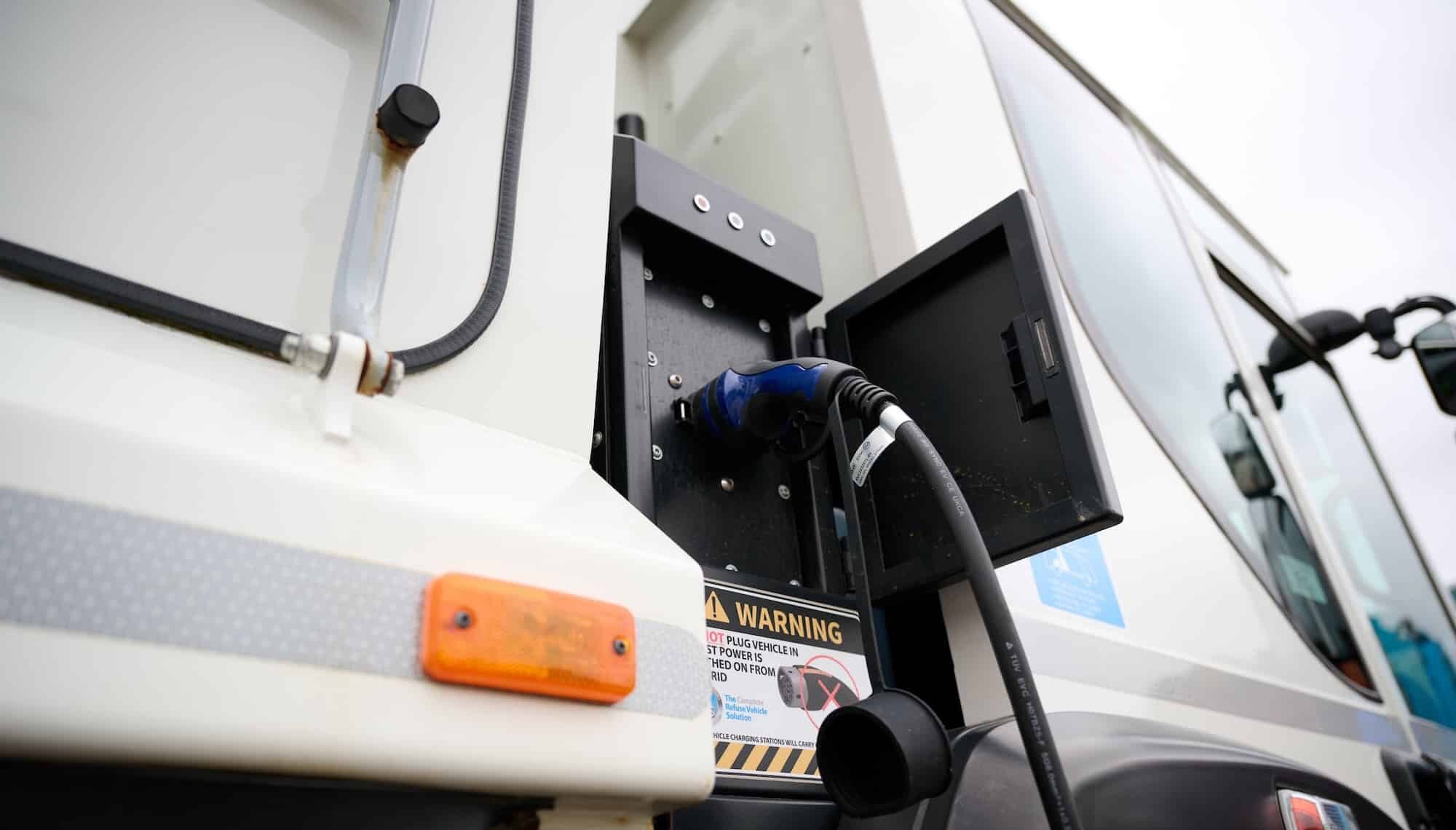No time to waste: building the case for electrifying refuse collection vehicles
By Andrew Brown, Strategic Partnerships Director, VEV
As the UK continues its journey towards achieving net zero emissions by 2050, local authorities are taking critical steps to make this urgent challenge a reality. Local government institutions impact over 80% of carbon emissions generated in their area1 and this explains the widespread call to action from over 300 councils in England that have declared a climate emergency. 82% of councils in the UK have plans to tackle their carbon emissions.2
A prime target for accelerating the decarbonisation mission is refuse and recycling collection.
Classed as heavy goods vehicles (HGVs), refuse collection vehicles (RCVs) can generate 600 grams per kilometre in carbon dioxide emissions, and are arguably the largest emitters in councils’ fleets.
While RCV electrification is an attractive carbon-reduction proposition, the business case must also stack up to make it happen. The challenges that councils face in delivering significant emissions reductions are substantial, and 93% of councils surveyed by the Local Government Association in 2023 stated lack of funding or finance options as the most impactful blocker.3 21% also cited lack of data as a barrier to address climate impacts.
For councils that take ownership of their vehicle fleets, the emissions become scope 1 in classification and as such are the councils’ direct responsibility to reduce.
(The Greenhouse Gas Protocol states that Scope 1 emissions are the emissions an organisation makes directly e.g., running boilers or a fleet of vehicles.)
Piloting eRCVs
Two essential components for any fleet electrification are rigorous vehicle & energy data analysis to design and configure the EV fleet and infrastructure, plus financing solutions to manage the large capex investment and ensure the business case is positive.
VEV is working with Refuse Vehicle Solutions Ltd (RVS) and public services provider Serco to pilot the use of electric RCVs and demonstrate the operational feasibility and financial business case.
RVS has refurbished and repowered two diesel RCVs into as-new electric vehicles for use in the pilot – lowering manufacturing carbon footprint and removing a diesel vehicle from the fleet.
VEV has supplied and installed charging infrastructure for the eRCVs, and is providing the fleet management platform, VEV-IQ, to track multiple parameters during the programme. This includes the eRCVs’ operations routes, charging schedules, power usage, and the CO2 savings achieved.
Serco eRCVs in Hampshire
The pilot project is underway with electric recycling and waste collection vehicles in Basingstoke and Deane, Hart, and Rushmoor councils in Hampshire.
Like many local authorities in recent years, Basingstoke and Deane, Hart, and Rushmoor all declared a climate emergency at the turn of the decade. Each council has set itself ambitious targets for achieving carbon-neutral operations well ahead of the UK Government’s mandated 2050 deadline and are implementing rigorous plans to deliver effective solutions to this end.
The councils have identified RCVs as an area to achieve significant emissions reductions. In the case of Basingstoke and Deane, for instance, RCVs account for 32% of emissions from the council’s fleet depot4, and 17% from Rushmoor’s5.
In partnership with Serco as their recycling and waste management provider, these Hampshire councils have recognised how electrification of high-emitting fleet vehicles can help them make significant inroads into reducing carbon emissions, providing a compelling opportunity for advancing their climate goals.
VEV first conducted a feasibility assessment to electrify the RCV fleet at Rushmoor based on that fleet’s telematics and energy data. The data analysis was done by VEV experts using our proprietary VEV-IQ software platform to translate the complex fleet data into an electrification solution including power requirements and charging infrastructure.
Serco were keen to build on the feasibility study and join the eRCV pilot programme to demonstrate the business case, operational feasibility and emission-reduction potential for rolling-out electric refuse and recycling collection in Hampshire.
Learning and collaborating to break new ground and achieve meaningful results
The project is very much a collaboration initiative, leveraging each party’s extensive expertise in their field – Serco, RVS and VEV. We’re working with new vehicles, new infrastructure, new operational processes, and training teams to maximise the benefits now and in the longer term.
The insights from the pilot will be invaluable for us to analyse with Serco. Together, we’re aiming to reveal the emissions-reduction results from eRCV fleet electrification.
The pilot will enable Serco to adjust and optimise the existing operation to deploy fleet electrification at scale. We will train their staff, install the software and support on the implementation.
Learning and collaboration are the keys to success for this project, and we’re collating feedback from drivers and fleet managers as well as monitoring and analysing the metrics on CO2, energy usage, mileage, range, charging scheduling and efficiency.
Unlocking a cleaner future – faster
We believe that this pilot programme will demonstrate the business case for eRCV electrification that can be implemented by councils across the country as part of carbon-emissions-reducing strategies.
With projects such as this, we’re helping both industry and regional authorities identify where intelligent efficiencies can be unlocked – bringing net zero, and a cost-efficient electrification strategy for local government, even closer to reality.
Get in touch with one of our expert team and find out more about how VEV can help streamline your EV transition.
References
1 Local Government Association, Council leaders call on Government to back local climate action, October 2023.
2 Local Government Association, Councils sound alarm on local climate threats, June 2023; CAPE.
3 Local Government Association, Councils sound alarm on local climate threats, June 2023.
4 Basingstoke and Deane, Carbon Footprint Update 2022-23
5 Rushmoor Council, Climate Change Action Plan, July 2023.
